
Find Help
More Items From Ergsy search
-

Can I get Botulism from Botox Treatments?
Relevance: 100%
-

How does Botox work if it's related to botulism toxin?
Relevance: 82%
-

Can I get botulism from Botox treatments?
Relevance: 75%
-

Is Botox treatment expensive?
Relevance: 59%
-

Can anyone get Botox treatments?
Relevance: 55%
-

How often should I get Botox treatments?
Relevance: 53%
-

What is Botox made from?
Relevance: 51%
-

Can Botox cause serious health issues?
Relevance: 51%
-

How should I choose a provider for Botox treatments?
Relevance: 51%
-

Is Botox safe?
Relevance: 48%
-

Is Botox safe?
Relevance: 47%
-

What is Botox?
Relevance: 47%
-
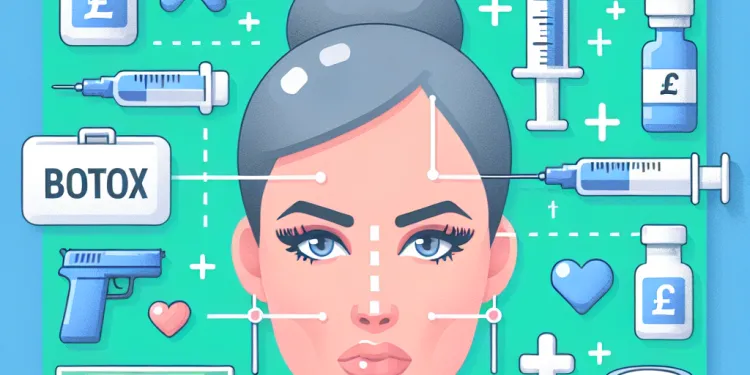
Is Botox vegan?
Relevance: 46%
-

What is Botox used for?
Relevance: 46%
-

Can Botox be used for migraines?
Relevance: 44%
-
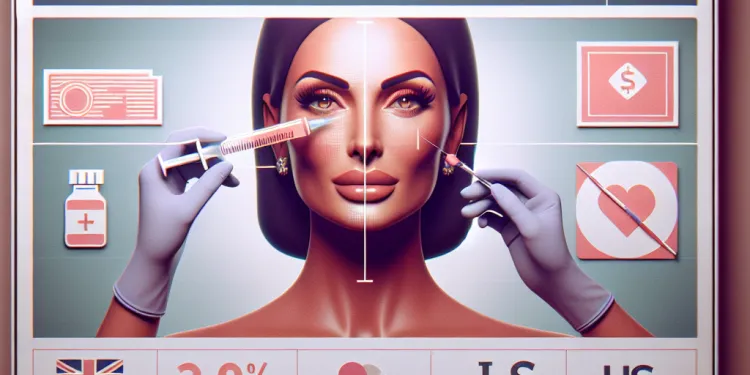
Does Botox hurt?
Relevance: 44%
-

How does Botox work?
Relevance: 44%
-
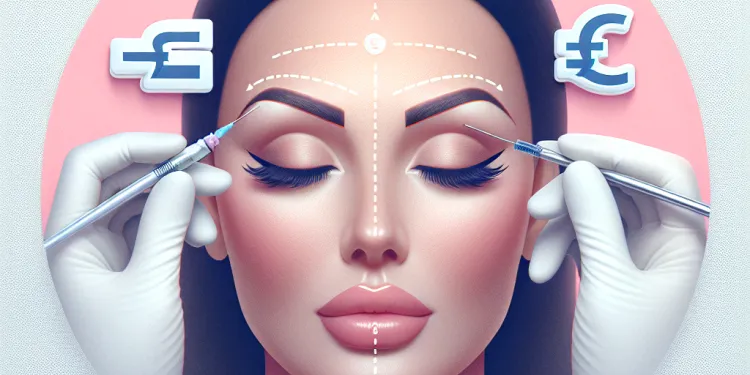
Can Botox lift my eyebrows?
Relevance: 43%
-

What areas can be treated with Botox?
Relevance: 43%
-

Who can administer Botox?
Relevance: 43%
-

Can Botox help with excessive sweating?
Relevance: 43%
-

What are the side effects of Botox?
Relevance: 43%
-

How long do the effects of Botox last?
Relevance: 43%
-

How much does Botox cost?
Relevance: 42%
-

What are the common uses of Botox?
Relevance: 42%
-

How long does Botox last?
Relevance: 42%
-

Can I get Botox while pregnant?
Relevance: 42%
-

Are there any long-term effects of using Botox?
Relevance: 42%
-

What are the side effects of Botox?
Relevance: 42%
-

How soon will I see results from Botox?
Relevance: 41%
-

Does Botox injection hurt?
Relevance: 40%
-

How long has Botox been used in medicine?
Relevance: 40%
-

Is it safe to go abroad for medical treatments such as botox?
Relevance: 40%
-

How should I prepare for a Botox appointment?
Relevance: 40%
-

Can Botox be used for treating conditions other than wrinkles?
Relevance: 39%
-

What precautions should I take before getting Botox?
Relevance: 39%
-

What should I do if I experience side effects after a Botox injection?
Relevance: 37%
-
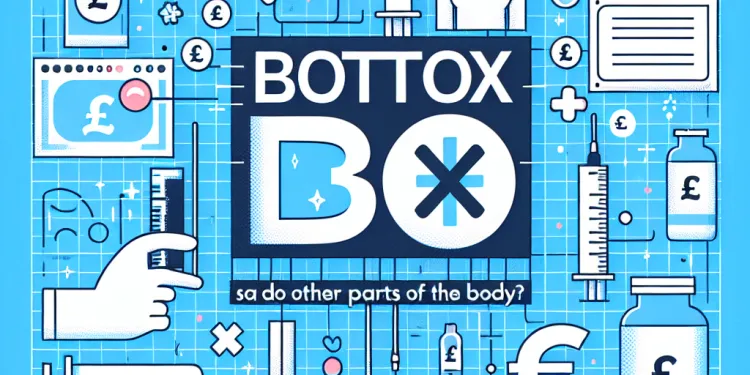
Can Botox spread to other parts of the body?
Relevance: 27%
-
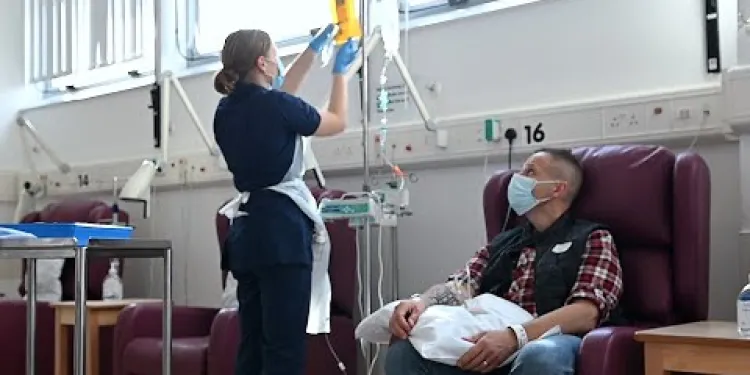
Having chemotherapy and other treatments in the Day Treatment Unit
Relevance: 20%
-

Is there a treatment for measles?
Relevance: 19%
Understanding Botox and Botulism
Botox, a brand name for onabotulinumtoxinA, is a widely-used cosmetic procedure in the UK. It is primarily used to reduce the appearance of facial wrinkles by temporarily paralyzing muscles. Botox is derived from the botulinum toxin, a neurotoxic protein produced by the bacterium Clostridium botulinum. This might naturally raise concerns about the safety of Botox, particularly regarding the risk of botulism, a serious illness caused by the same bacterium.
What is Botulism?
Botulism is a rare but potentially fatal illness caused by the toxin produced by Clostridium botulinum bacteria. It affects the body's nerves and can lead to respiratory failure if not treated promptly. Symptoms of botulism include difficulty swallowing or speaking, facial weakness, and muscle paralysis. Foodborne botulism is the most common form and occurs when someone ingests the toxin, often from improperly preserved foods.
Is There a Risk of Botulism from Botox?
Though Botox is derived from the botulinum toxin, the risk of contracting botulism from Botox treatments is extremely low. This is because the amount of toxin used in medical and cosmetic applications is highly purified and administered in minute, controlled doses. Healthcare professionals are trained to use Botox safely, ensuring that it does not spread to other parts of the body or result in botulism.
Regulations and Safety Measures
In the UK, Botox treatments are regulated by strict guidelines. Practitioners must be qualified and experienced in administering these injections. The Medicines and Healthcare products Regulatory Agency (MHRA) oversees the approval and monitoring of treatments like Botox, ensuring their safety and efficacy. When administered by a licensed professional, Botox is considered safe with very low risk of side effects, including botulism.
Side Effects of Botox
While the risk of botulism is negligible, Botox treatments do carry the potential for other side effects. Common side effects include localized pain, swelling, or bruising at the injection site, as well as headaches and flu-like symptoms. Rarely, patients might experience problems such as drooping eyelids or uneven eyebrows. These effects are typically temporary and resolve on their own.
Conclusion
In conclusion, while Botox contains botulinum toxin, the risk of botulism from cosmetic or medical Botox procedures is extremely low. This is due to the careful preparation and administration of the toxin in a controlled setting. It is essential to seek treatments from qualified practitioners to ensure safety. If you have any concerns regarding Botox procedures, it is advisable to discuss them with a healthcare professional.
Understanding Botox and Botulism
Botox is a treatment used to make wrinkles on the face look smaller. It helps by relaxing the muscles in the face. Botox comes from a toxin made by a germ called Clostridium botulinum. This might make people worried about safety because the same germ can cause a sickness called botulism.
What is Botulism?
Botulism is a very rare but serious sickness. It happens because of a toxin from the Clostridium botulinum germ. This sickness can hurt the body's nerves and make it hard to breathe if not treated quickly. Signs of botulism include trouble swallowing or talking, weak muscles in the face, and muscle paralysis. The most common way people get botulism is by eating food that has not been stored properly.
Is There a Risk of Botulism from Botox?
Even though Botox comes from the botulinum toxin, getting botulism from Botox treatments is very unlikely. This is because Botox uses a small amount of the toxin that is cleaned and given in safe, tiny doses. Doctors and nurses who give Botox know how to do it safely so it doesn't cause botulism.
Regulations and Safety Measures
In the UK, there are strict rules about using Botox. Only doctors and nurses with special training can give Botox. There is an agency called MHRA that checks these treatments to make sure they are safe. When given by a trained professional, Botox is safe, and the chance of getting side effects, like botulism, is very low.
Side Effects of Botox
While getting botulism from Botox is not likely, there can be other side effects. These can include pain, swelling, or bruising where the needle goes in, as well as headaches or flu-like feelings. Sometimes, people might notice drooping eyelids or uneven eyebrows, but these usually go away on their own.
Conclusion
In summary, Botox does contain botulinum toxin, but the chance of getting botulism from Botox is very small. This is because it is given carefully in a doctor's or nurse's clinic. Always go to a trained professional for Botox. If you have questions, talk to your doctor or nurse.
Frequently Asked Questions
Useful Links
Have you found an error, or do you have a link or some information you would like to share? Please let us know using the form below.
-->
This website offers general information and is not a substitute for professional advice.
Always seek guidance from qualified professionals.
If you have any medical concerns or need urgent help, contact a healthcare professional or emergency services immediately.
Some of this content was generated with AI assistance. We’ve done our best to keep it accurate, helpful, and human-friendly.
- Ergsy carfully checks the information in the videos we provide here.
- Videos shown by Youtube after a video has completed, have NOT been reviewed by ERGSY.
- To view, click the arrow in centre of video.
- Most of the videos you find here will have subtitles and/or closed captions available.
- You may need to turn these on, and choose your preferred language.
- Go to the video you'd like to watch.
- If closed captions (CC) are available, settings will be visible on the bottom right of the video player.
- To turn on Captions, click settings .
- To turn off Captions, click settings again.
More Items From Ergsy search
-

Can I get Botulism from Botox Treatments?
Relevance: 100%
-

How does Botox work if it's related to botulism toxin?
Relevance: 82%
-

Can I get botulism from Botox treatments?
Relevance: 75%
-

Is Botox treatment expensive?
Relevance: 59%
-

Can anyone get Botox treatments?
Relevance: 55%
-

How often should I get Botox treatments?
Relevance: 53%
-

What is Botox made from?
Relevance: 51%
-

Can Botox cause serious health issues?
Relevance: 51%
-

How should I choose a provider for Botox treatments?
Relevance: 51%
-

Is Botox safe?
Relevance: 48%
-

Is Botox safe?
Relevance: 47%
-

What is Botox?
Relevance: 47%
-

Is Botox vegan?
Relevance: 46%
-

What is Botox used for?
Relevance: 46%
-

Can Botox be used for migraines?
Relevance: 44%
-

Does Botox hurt?
Relevance: 44%
-

How does Botox work?
Relevance: 44%
-

Can Botox lift my eyebrows?
Relevance: 43%
-

What areas can be treated with Botox?
Relevance: 43%
-

Who can administer Botox?
Relevance: 43%
-

Can Botox help with excessive sweating?
Relevance: 43%
-

What are the side effects of Botox?
Relevance: 43%
-

How long do the effects of Botox last?
Relevance: 43%
-

How much does Botox cost?
Relevance: 42%
-

What are the common uses of Botox?
Relevance: 42%
-

How long does Botox last?
Relevance: 42%
-

Can I get Botox while pregnant?
Relevance: 42%
-

Are there any long-term effects of using Botox?
Relevance: 42%
-

What are the side effects of Botox?
Relevance: 42%
-

How soon will I see results from Botox?
Relevance: 41%
-

Does Botox injection hurt?
Relevance: 40%
-

How long has Botox been used in medicine?
Relevance: 40%
-

Is it safe to go abroad for medical treatments such as botox?
Relevance: 40%
-

How should I prepare for a Botox appointment?
Relevance: 40%
-

Can Botox be used for treating conditions other than wrinkles?
Relevance: 39%
-

What precautions should I take before getting Botox?
Relevance: 39%
-

What should I do if I experience side effects after a Botox injection?
Relevance: 37%
-

Can Botox spread to other parts of the body?
Relevance: 27%
-

Having chemotherapy and other treatments in the Day Treatment Unit
Relevance: 20%
-

Is there a treatment for measles?
Relevance: 19%


